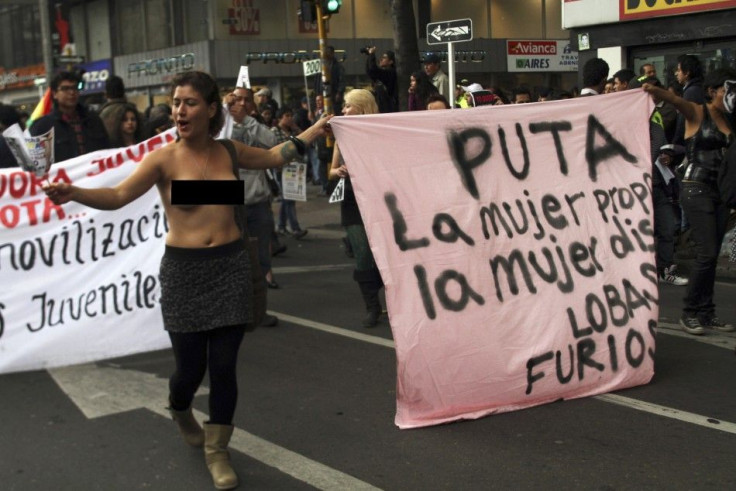Vatican, Iran, Russia, Egypt Oppose Ban On Violence Against Women

The United Nations has devoted much of the past month to raising awareness about violence against women.
March 8 is annually declared International Women’s Day, and this year’s commemoration was especially focused on ending violence against women.
And U.N. Secretary-General Ban Ki-moon has made it a special project during his tenure.
You would think that not hitting women and granting them equal rights would be a cause behind which most, if not all, of the U.N. member states could -- and would -- get.
Not so fast. On Thursday, Egypt, Iran, Russia, and the Vatican all stood in opposition to a declaration put forward by the U.N. Commission on the Status of Women that would urge an end to violence against women and girls, Reuters reported.
What was the problem? Apparently, some of the language in the declaration that touched on sexual, reproductive, and gay rights was objectionable. Language on access to contraception, abortion, and treatment of sexually transmitted diseases was seemingly particularly unacceptable.
Several unnamed African nations also reportedly “distanced themselves” from the proposal.
Egypt introduced an amendment that would allow member states to avoid implementing these recommendations if they “clashed with national laws, religious, or cultural values.” Egyptian President Mohammed Morsi and his political allies also claimed the declaration could “subvert the entire society” by raising the marriage age and allowing women to travel, work, and use contraception, as well as by a wife controlling family spending without her husband’s permission, according to the Muslim Brotherhood’s Ikhwanweb.
“The document includes articles that contradict established principles of Islam, undermine Islamic ethics, and destroy the family,” said the Muslim Brotherhood's statement on the online site.
The Coalition for Sexual and Bodily Rights in Muslim Societies and other organizations released a statement about the proposal, saying, “The current positions taken by some Arab governments [are] clearly not representative of civil-society views, aspirations, or best practices regarding the elimination ... of violence against women.”
One U.N. diplomat told Reuters that Russia had introduced an amendment saying unilateral sanctions promote violence against women. “[This] strikes us as a bit of a stretch, and it’s slightly out of place,” the diplomat said.
The Vatican is a nonmember observer state at the U.N.
© Copyright IBTimes 2024. All rights reserved.






















